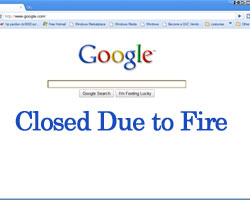
There are different kinds of buyers in any market, and there are still many who consider value over price. Even while shopping for identical products, many people will consider the value of buying it from somebody they trust or find other benefits from. It takes more effort to find value-shoppers than to find price-shoppers, but they are worth every bit of it. They will be back, and they will tell their friends.
I will use my industry as an example, but it is important to consider this in any industry. I sell marketing. In my case, value is all that really matters. Return on investment (ROI) is what makes sense to my clients. What they spend is not what matters but rather what they will receive for their money … which is more money. Profit is what my clients want, and they will do what it takes to get it. At the same time, I also attract a lot of “glancing prospects” and “lookers” without any intention of seeking value. Do you want to guess which one I consider important? That’s right … I want the ones who want the ROI and look closer to understand the value of my services.
Cheap Marketing and Low Value
Business people are cost-conscious, and more now than ever. Ironically, this often leads them to mistakes that sabotage their business efforts. As a reaction to their fears, companies will often drop their prices and subsequently drop their value. Marketing is the easiest cost to cut, but also the fastest way to reduce profit and go out of business. I watch companies all the time that neglect the value of their marketing, and try to use a cost proposition in place of a value proposition. It is a short-term cashflow bandage that becomes their undoing.
You can call me crazy, but I am smart enough to get dressed before going to the grocery store. In fact, I can be pretty downright bright, on a good day. I guess I am not smart enough to see the “wisdom” in some people’s reasoning of comparing cost above value. Some will try to weigh the cost with value, but often use completely flawed metrics for comparison. I see people all the time who do not understand how dangerous bargain hunting can be when it comes to their marketing, or with other purchases.
How Valuable is Marketing?
Marketing is what makes companies money. Marketing is how customers find companies and companies find customers. Marketing, in some manner or another, is the only way a company will earn a profit. Marketing should not have a net cost, but rather a profit gain. Marketing should be viewed as an investment, and not an expense. Seeking the lowest cost for something so value-driven seems like the absolute absence of logic. Looking for value, on the other hand, is brilliant.
Do People Really Seek Cheap Marketing?
Yes, a lot of people ask questions about the cost of marketing and rates for marketing-related services. At least that is what my website visitor logs show me. Perhaps you see the same in your industry. I am including a list of cost-related things people searched for and found my blog. Some of them are pretty amusing. People even found my blog searching to find how much it costs to join Facebook.
One of the first things a person in my field often hears is “how much will it cost?” I weed these out fast, because when cost is the question and value is secondary, usually the person asking fits into one of two categories as follows:
- They do not have enough money to afford quality marketing. If they do not have the money to do things right, they will never be pleased … ever. It is the same kind of client who tries to tell the consultant what to do rather than accept the consultation they pay to receive.
- They ask about cost because it is the question they know best. They assume that a lower investment comes with a lower risk, but this is really not the case. This assumption places the value equation completely backward. Without value, the cost of marketing does not matter. It is not worth it at any cost, and can often have disastrous results.
Similarly, in your line of work, you will likely find that if your prospective customers recognize the value of what you offer, they will often find a way to deal with the cost.
Marketing Value and Cost Consideration: Do You Buy Price Tags?
I have never bought a price tag, but I have purchased a lot of things with price tags on them. Sure, some people buy price tags … literal price tags. What I mean is whether you look at an item and decide that you want it and then look at the price tag, or do you look at the price tag to decide whether you want it. Think about your customers and how they may address this same question. Value-seeking customers will decide whether they want or need something, acknowledge that they want or need it, and then look at the price tag. Cost-seeking customers will look at the price tag and if the price is “right” decide whether it was something they were even interested in buying. They love to look, but they hate to part with money more than they enjoy what they receive in return. NOTE: For this customer, the “right” price is highly subjective to poor interpretation.
Cost, Rates, and Value: Lookers Are Everywhere!
Glancing prospects are very easy to lure. I can drag them in by the truckload. Just have a look at these recent searches people performed to land here at my blog, and then consider how many of these I will likely do business with. Don’t get me wrong, because I like when people ask about cost. It is a buying sign and tells me they are in the market. The fact remains that when somebody asks me about cost before understanding value, I normally tell them kindly that they are simply not ready for what I offer. What I offer is profit!
There are enough people asking about cost, but it is funny to find that a comparatively few people ask questions of value. Those are the people I want, and I hope you can see the value in this, too!
Note that my list of “What Cheap People Search For” is based on actual terms people typed into a search engine and clicked on my blog. I couldn’t make this up if I tried. You may not be as amused as I am, but somebody actually wanted to know “how much does a sheep cost” … really, a sheep. Darn, I don’t sell sheep. You can bet that if I did sell sheep, they wouldn’t be cheap sheep.



